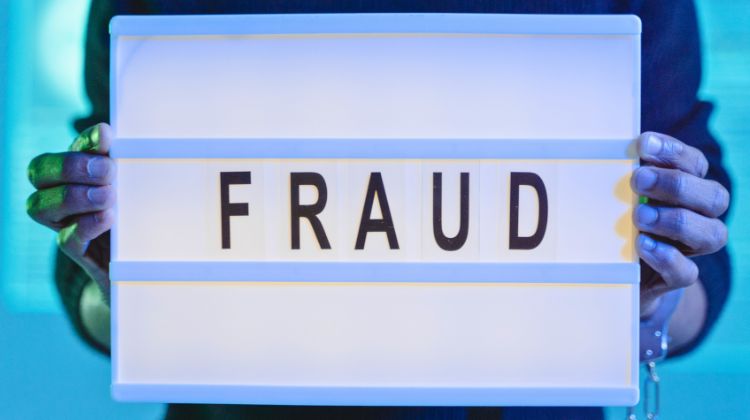
The whispers about VA disability fraud are real. Some veterans think it’s rampant, while others believe it’s a minor issue. What’s the truth? This post explores VA disability benefits fraud, what constitutes fraud, how prevalent it is, and what’s being done to combat it.
This isn’t just about numbers and statistics. It’s about the integrity of the system supporting those who served. Fraud undermines the sacrifices of veterans and their families. It’s a betrayal of trust that demands attention.
Table of Contents:
- Understanding VA Disability Fraud
- The Impact of VA Disability Fraud
- Combating VA Disability Fraud
- Seeking Legitimate Assistance with VA Disability Claims
- Conclusion
Understanding VA Disability Fraud
VA disability fraud involves knowingly misrepresenting information to receive VA benefits you’re not entitled to. This can range from exaggerating existing conditions to fabricating new ones entirely. It also includes collecting benefits for a deceased veteran.
Types of VA Disability Fraud
- Exaggerating Conditions: A veteran might claim their back pain is debilitating, preventing them from working when it’s actually manageable with medication.
- Fabricating Conditions: This involves claiming a disability that doesn’t exist, supported by falsified medical records. Outside parties sometimes help manufacture fake evidence, like the New Hampshire man sentenced to prison for faking a disability.
- Concealing Information: A veteran might continue receiving disability benefits after their condition improves or they return to work. The VA website has information on various fraud schemes.
- Benefit Diversion: Someone might collect benefits intended for a deceased veteran or divert payments to their own bank account.
The Impact of VA Disability Fraud
Beyond the financial implications, VA disability fraud erodes public trust in the VA healthcare system. This makes it harder for deserving veterans to access the benefits they’ve earned.
When resources are diverted to fraudulent claims, legitimate claims may face processing times delays and added scrutiny.
Who Commits VA Disability Fraud?
Fraud isn’t limited to veterans. Healthcare providers, accredited representatives, and even veterans family members can be involved.
Claims predators target vulnerable veterans, charging unlawful fees for help with VA claims and making false promises of higher disability ratings or expedited claims processing.
Aggressive communication tactics are often used by those who charge veterans unlawfully.
Combating VA Disability Fraud
The VA is actively working to prevent and detect fraud. They employ data analysis, investigate suspicious claims, and work with law enforcement to prosecute those who commit benefits fraud. Enhanced security measures like multi-factor authentication protect accounts.
They’ve also assembled a fraud toolkit. You can find additional tools and resources on scams at the Consumer Protection Financial Bureau website.
Fraud reported by veterans or veterans family members is essential in fraud prevention. If your accredited representative acted unlawfully and attempted to gain undeserved payment, contact the VA.
What You Can Do to Report Suspicious Activity
If you suspect VA disability fraud, report suspicious activity through several reporting options. Your actions protect benefits for those who deserve them. If you want to contact VA about a question regarding a text message or email you think is related to VA benefits fraud, you should contact VA immediately.
| Type of Fraud | How to Report |
|---|---|
| Missing Payment/Discrepancy | VA Benefits Hotline: 1-800-827-1000 |
| Healthcare-Related Fraud | VHA Office of Integrity and Compliance Helpline: 866-842-4357 |
| Unlawful or Unethical Representative | VSAFE: 1-833-38V-SAFE (1-833-388-7233) or VSAFE Website |
| General Fraud (Non-VA) | Federal Trade Commission (FTC) |
Seeking Legitimate Assistance with VA Disability Claims
Many veterans struggle with the VA claim process. It’s often lengthy, complex, and filled with confusing paperwork.
Legitimate support is available. There are resources that can assist without taking advantage of veterans. Protect your personal identifiable information like your social security number, bank accounts, social media, and other personal information. Be cautious when dealing with your direct deposit or when asked to obtain prepaid debit cards. These are typical tactics of scammers who target veterans.
Trusted Resources
- Accredited Representatives: Work with a VA-accredited attorney, claims agent, or Veterans Service Organization (VSO) representative.
- VET Claim Solutions: Learn more about specific disability ratings like rotator cuff repair.
- AttainMed Group: Here you can find resources about the VA disability rating for tinnitus.
Beware of anyone who promises guaranteed results or charges exorbitant fees. The VA has a website for reporting fraud, waste, and abuse for those seeking additional support. Phishing attempts such as fraudulent email scams and text messages asking for personal information like bank account details and other information are a tactic used by claims predators. Be aware of contracts agreeing to unlawful fees. Intentional misrepresentation is a federal crime.
Conclusion
VA disability fraud is a serious offense with far-reaching consequences. It’s important for veterans and their families to be aware of these schemes and report suspicious activity. Protecting the integrity of the VA benefits system helps all those who’ve honorably served.
By working together, we can combat VA disability fraud and ensure that these vital resources reach those in need. If you or your family is approached by individuals who are not va accredited and try to persuade you into signing a contract agreeing to unlawful or unethical practices you should report it immediately. They might aggressively communicate through email or text messaging in attempts to “help” you process your claims processing and receive benefits. These claims are often predatory.